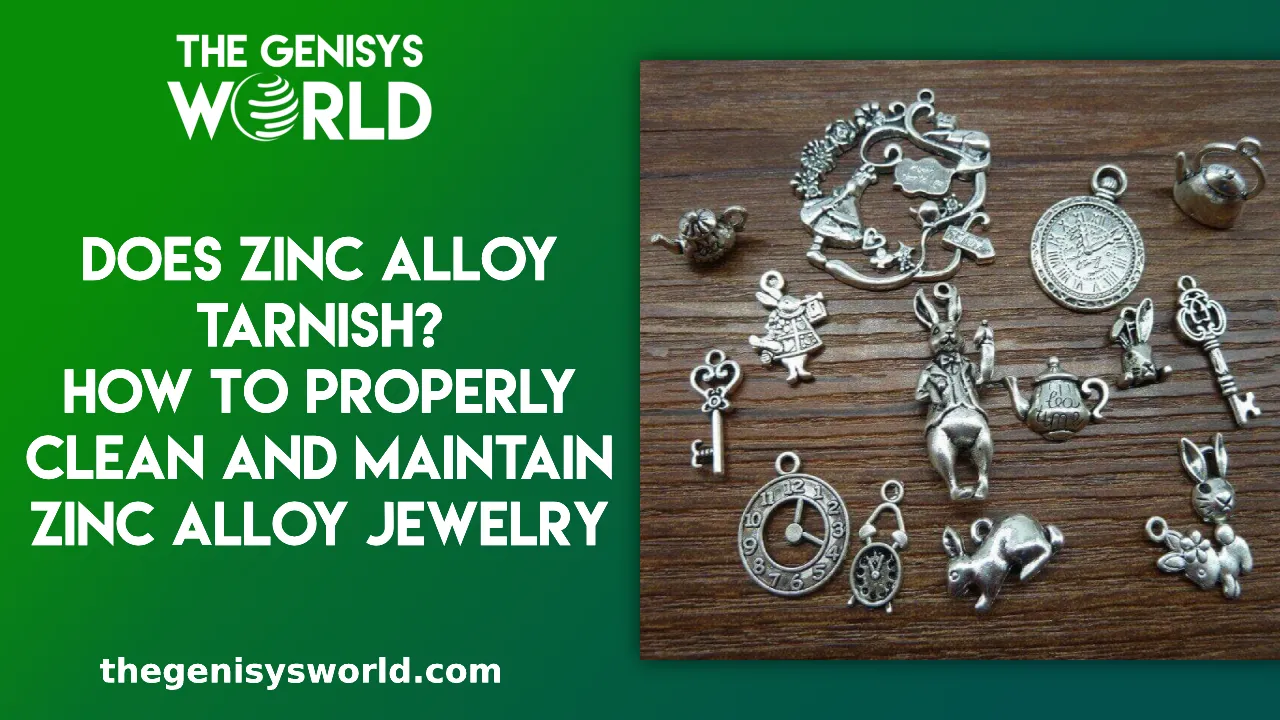Does Zinc Alloy Tarnish? How to Properly Clean and Maintain Zinc Alloy Jewelry
Zinc alloy is widely used in jewelry and household items for its durability and affordability, but concerns about tarnishing can affect its appearance and longevity. This article examines whether zinc alloy tarnishes, identifies factors that cause tarnishing, and offers detailed advice on proper cleaning and maintenance techniques
Understanding Zinc Alloy
Zinc alloy is a popular material used in jewelry, hardware, and various household items. It is primarily composed of zinc mixed with other metals such as copper, aluminum, and magnesium, which enhances its strength and durability. The versatility and cost-effectiveness of zinc alloy make it a preferred choice for many manufacturers.
Does Zinc Alloy Tarnish?
Tarnish is a thin layer of corrosion that typically occurs on metal as a result of chemical reactions with air and other substances. Unlike silver or copper, zinc alloy is relatively resistant to tarnishing. However, it is not completely impervious to discoloration or corrosion over time, especially when exposed to humidity, skin oils, and environmental pollutants.
Factors Influencing Tarnishing
- Exposure to Air and Humidity: Extended exposure to air and high humidity can accelerate the tarnishing process of zinc alloys.
- Contact with Skin Oils and Sweat: Regular contact with skin oils and sweat can cause zinc alloy jewelry to corrode or tarnish more quickly.
- Environmental Pollutants: Urban pollution and exposure to harsh chemicals can also lead to tarnishing of zinc alloy items.
How to Properly Clean Zinc Alloy
Proper cleaning is crucial to maintain the appearance and extend the life of zinc alloy jewelry. Here are some effective cleaning methods:
Basic Cleaning
- Mild Soap and Water: The simplest way to clean zinc alloy jewelry is by using mild soap mixed with warm water. Gently scrub the jewelry with a soft-bristled brush, rinse it under clean water, and dry with a soft cloth.
- Vinegar Solution: For more thorough cleaning, prepare a solution of one part vinegar to two parts water. Soak the jewelry for a few minutes, then brush gently and rinse with water.
Advanced Cleaning Techniques
- Baking Soda Paste: Make a paste using baking soda and water. Apply this paste to the jewelry and gently scrub with a soft brush. This method is particularly effective for removing tougher tarnish.
- Specialized Metal Polish: For deeper tarnish, use a metal polish designed for zinc or similar metals. Follow the manufacturer’s instructions carefully to avoid damaging the jewelry.
Preventive Measures to Avoid Tarnishing
Taking preventive measures can significantly reduce the rate at which zinc alloy tarnishes:
- Storage: Store zinc alloy jewelry in a cool, dry place. Use anti-tarnish strips in the storage area to absorb tarnish-causing elements.
- Regular Cleaning: Regularly clean your jewelry to prevent the buildup of oils and other substances that can accelerate tarnishing.
- Avoid Chemical Exposure: Keep zinc alloy items away from harsh chemicals found in cleaning agents, cosmetics, and perfumes. Visit: Does zinc alloy tarnish
Conclusion
While zinc alloy does have the potential to tarnish over time, proper care and maintenance can greatly prolong its appearance and usability. By understanding the factors that contribute to tarnishing and following the recommended cleaning and preventive practices, you can keep your zinc alloy jewelry looking its best for years to come.







